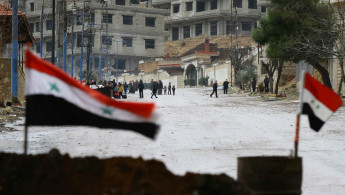Aid to be delivered to besieged Syrian areas
Speaking in Damascus, UN envoy Staffan de Mistura said aid convoys will be sent on Wednesday in what will be a "test" of whether the warring parties will allow in humanitarian supplies.
"It is the duty of the government of Syria to want to reach every Syrian person wherever they are and allow the UN to bring humanitarian aid," he said after meeting Syria's Foreign Minister Walid Muallem.
"Tomorrow we test this," he said on Tuesday.
Today the Syrian foreign ministry hit back against envoy de Mistura's comments.
"We do not wait for anyone to remind us of our duties toward our people," the foreign ministry said.
The UN estimates that 18 Syrian communities are besieged, affecting around half a million people.
A Red Crescent source said the first convoys will head for the Shia villages of Fuaa and Kafraya in the north, and to Madaya and Zabadani, which are encircled by the army.
The implementation of aid-delivery has previously been critiqued by opposition activists for failing to reach all citizens in besieged areas.
Allowing in humanitarian aid was an important element in negotiations to clinch a ceasefire across war-torn Syria, but both sides have cast doubt on whether it will be implemented.
Seventeen world powers agreed to a nationwide "cessation of hostilities" across Syria within a week under a deal struck in Munich last Thursday to end a war that has killed more than 460,000 people.
But the bombings of at least five medical facilities and two schools in northern Syria, which the UN said Monday killed 50 people including children, have dimmed hopes for a ceasefire.
Critics that the Munich conference did little aside from "appeasing" Assad and Russia, who appear to be on a push to take the remaining opposition-held areas in Syria, displacing thousands as a result.
Under the deal, a new round of peace talks will be held in Geneva on February 25.





 Follow the Middle East's top stories in English at The New Arab on Google News
Follow the Middle East's top stories in English at The New Arab on Google News


